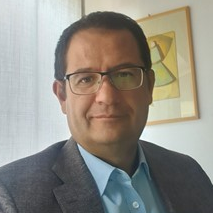
1. What was your work experience prior to becoming Section Editor-in-Chief of “Hydrogen Energy”?
I am currently a Professor of Sanitary and Environmental Engineering at the University of Napoli Federico II. In 2004, I was awarded a Ph.D. in Hydraulic and Environmental Engineering from the same University, for which 1 year was conducted at the University of Wageningen in the Netherlands. From 2004 to 2018, I worked at the University of Cassino and Southern Lazio, where I established my lab and research group of several Ph.D. students and post-doc fellows, funded by the European Commission. I have supervised more than 30 Ph.D. and 70 MSc students. Both at the University of Napoli Federico II and at the University of Cassino and Southern Lazio, I was responsible for several courses in the environmental technology field and am the member of several boards and committees.
2. What attracted you to science editing?
I think that science editing is a very important part of academic work. Although it is time consuming, I believe that high-quality science editing results in a high-quality journal, and I believe that only top journals, such as Energies, should be targeted for publishing.
3. What advice would you offer to a new editor of a journal?
My advice to new editors is to commit themselves to this activity and contribute to selecting the top papers to be published by carefully pre-checking the submissions and selecting the most suited reviewers.
4. Energies is an open access journal. How do you think open access impacts authors?
I think that the impact of open access is very high, and it will further increase in future. I believe that in the coming years, open access will become the main publishing model, replacing the traditional subscription model.
5. To which research fields do you think we should be paying more attention?
I think that all research fields linked to the United Nations 17 Sustainable Development Goals (SDGs) deserve to be paid maximum attention.
6. What has been your biggest challenge and greatest achievement in your career so far?
My biggest challenge and greatest achievement has been the coordination, from 2009 to 2019, of two International Doctorates funded by the European Commission, i.e., the “Marie Curie” European Joint Doctorate in Advanced Biological Waste to Energy Technologies (ABWET) and the “Erasmus Mundus” international Joint Doctorate in Environmental Technologies for Contaminated Solids, Soils and Sediments (funding of €5,500,000 and €4,000,000, respectively), with 62 doctoral candidates involved.
7. How do you achieve a balance between research policy and practice in the various professional communities?
To achieve a balance between the different academic and professional activities is really challenging. I believe that this is possible when one is part of an active and efficient working group, and this happens to be the case with me at the University of Napoli Federico II.


